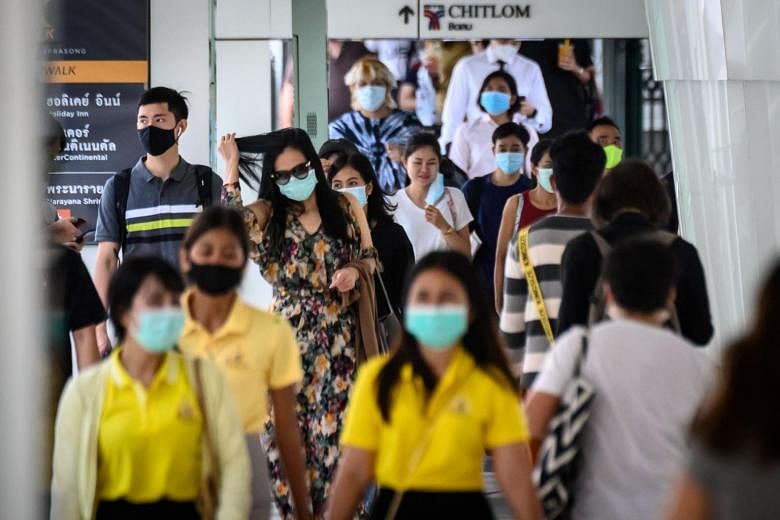BANGKOK (BLOOMBERG) - Thailand's Cabinet extended the country's state of emergency for a fourth time, by one month through Aug 31, an expected decision aimed at keeping the country's Covid-19 count to one of the lowest in Asia, according to a government spokeswoman.
The country hasn't detected any new coronavirus cases from local transmission for about two months.
Overall, it has reported 3,298 cases and 58 deaths from the virus, but officials said they are wary as new outbreaks have occurred in other places, including Hong Kong and Vietnam.
Critics of the government say the extension targets anti-government protests, which Prime Minister Prayut Chan-o-cha said was not the case.
Thousands of people, including many students, demonstrated in Bangkok and a few other cities this month calling for the premier's resignation.
"I'm not obstructing any protests as long as they're legal," Mr Prayut said after the Cabinet meeting. "I'm concerned because the protesters are the future of this country. They have a drive for change," but their actions may "create divisions" in society.
Mr Prayut is a former general who took power in a coup in 2014, though his current term followed a national election in March 2019.
A reshuffle is coming after four ministers, including the finance chief, recently resigned. A new Cabinet lineup will be sent for royal endorsement in August, the premier said, without elaborating on who would be appointed.
Meanwhile, a new central bank governor was approved by the Cabinet.
Mr Sethaput Suthiwart-Narueput, 55, who has been a member of the monetary policy committee since 2014 and is an economic adviser to the premier, will replace Mr Veerathai Santiprabhob, who declined to seek a second five-year term and whose tenure expires Sept 30.
Thailand's export- and tourism-reliant economy will shrink by as much as 8.1 per cent this year, according to the central bank. The country didn't report any foreign tourist arrivals in April to June.
In an effort to boost the economy, the Cabinet approved a plan by the National Security Council (NSC) to ease border lockdowns, according to Ms Narumon Pinyosinwat, a government spokesman.
The NSC plan calls for medical tourists, trade exhibition attendees and foreign film crews to be granted visas. Also, more than 100,000 migrant workers from nearby Myanmar, Cambodia and Laos will be allowed entry.











